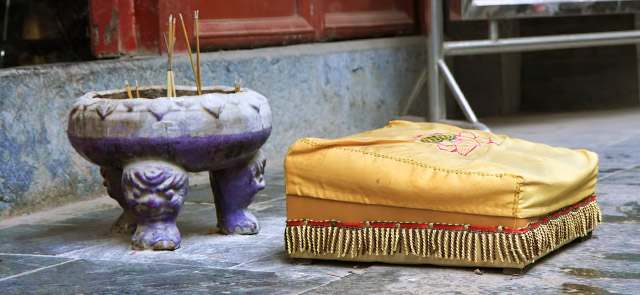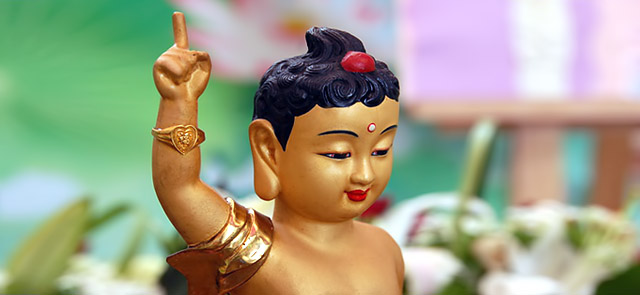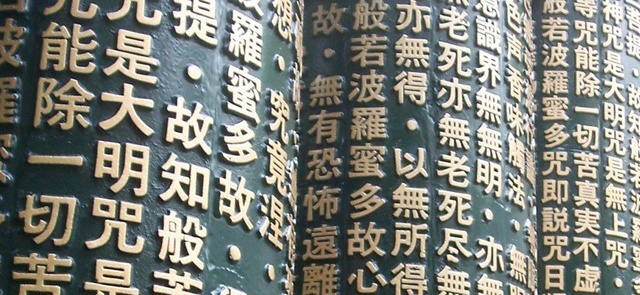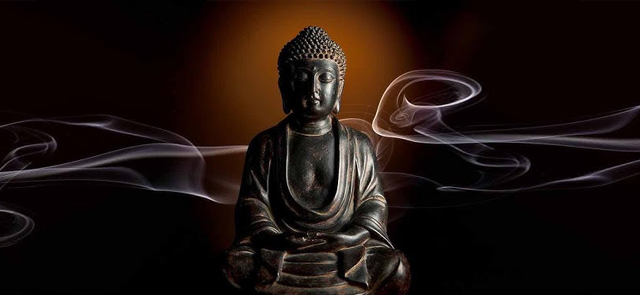Our mind [Chin.: Xīnshén 心神] and emotions [Chin.: Qíngxù 情绪] play an important part in determining our wellness. They are the internal factors that affect the proper flow of energy and control internal harmony [Chin.: nèibù de héxié ?????].
Emotions are important because it is how we feel about who we are and what we are doing that determines the success or failure of our efforts. The emotions are the bridge between the mind and the body. If we have little confidence in our problem solving abilities, our attempts to find the solution to even the simplest puzzles will be thwarted. If we are impulsive and don't have the patience, an emotional attitude, to apply prolonged concentration to an idea or project, our results will be as shallow as our focus. We all have the ability to enhance our emotional self-image and well being. Emotions that have been suppressed do not just disappear into the ethers. They collect in the body. When emotions of fear, anger, lack or pain are held in the body they impede the ability for the affected organs to do their job efficiently. Science now knows that the receptors sites on the cells for particular peptides are disrupted or close down altogether. Since the body is a network of interconnected physical expression, any organ system that has been compromised will weaken the entire system, and reduce mental clarity.
When emotions are negative or suppressed, the creative urge is either quelled or distorted. If you choose to express your full creative potential, learning to effectively release trapped emotional stress is imperative. The joy that results in unimpeded creative expression or creative problem solving is worth the effort expended to create emotional well-being in the body and mind. The body and mind aren't separate; they are extensions of one another, interconnected and interdependent. Emotions are the bridge that weaves the energetic forces together, and the resulting pattern can be one of joy and appreciation for life. Clarity of mind, perfect health, and freedom of spirit is the pristine reward of emotional well-being.
An ancient text, the Yellow Emperor's Inner Canon "Huang Di Nei Jing" [Chin.: Huángdì Nèij?ng ????], compares the function and position of internal organs to hierarchies found in an empire. It tells us: "The heart is like the minister of the monarch who excels through insight and understanding; the lungs are the symbol of the interpretation and conduct of the official jurisdiction and regulation; the liver has the functions of a military leader who excels in his strategic planning; the gall bladder... excels through his decisions and judgment; the middle of the thorax is like the official of the center who guides the subjects in their joys and pleasures...the kidneys are like the officials who do energetic work and they excel through their abilities...."
"Extreme fear," says the "Huang Di Nei Jing", "is injurious to the kidneys." "Sickness of the liver," "causes...people... to have fits of anger." Anger causes Qi-and tempers-to rise.
Anger covers a full range of emotions including resentment, irritability and frustration. Anger is found to affect the liver, resulting in the stagnation of liver function. It leads the liver energy to rise to the head, causing headaches and dizziness. Over a long period of time, it may cause high blood pressure and problems with the spleen system.
Joy refers to over excitement rather than the ordinary sense of happiness. When people are overexcited, their body temperature rises quickly; their heart beats faster and is stressed. Heart fire results in agitation, insomnia, palpitations and exerts undue pressure on the other organs. It certainly disturbs the internal harmony.
Worry comes from over thinking or too much mental and intellectual stimulation. Any such activities run the risk of upsetting peace of mind and internal harmony. The organ mostly affected is the spleen. It leads to loss of spleen energy, indigestion and lost of appetite. All these can intensify worry and result in fatigue, lethargy, and inability to concentrate and think clearly. When the digestive system is affected, it fails to nourish the other organs and results in organ malfunctions. If the problem is not rectified early, it can cause permanent damage.
Sadness and grief affect lungs. When sadness in not temporary and is chronic, it creates disharmony to the lungs and weakens its functions. This will manifest into insufficient energy to the whole body creating other levels of disharmony.
Fear is a normal and adaptive human emotion. But when fear is chronic, it leads to disharmony in the kidneys. In case of extreme fright, the kidney loses its ability to hold energy and may result in enuresis. This is quite common to children when they encounter fear. When kidney energy is deficient, a whole series of problems affecting the balance of body fluid will occur, affecting bones and marrow and in turn affecting the well being of the brain.
Mind and emotions have a far-reaching impact on our state of health. Most Chinese exercises like Qigong [Chin.: qìg?ng ??] Shaolin Rou Quan [Chin.: Shàolín róuquán ????] and Taijiquan [Chin.: tàijíquán???] are to train the mind to be in the mindless state. By clearing the mind from thoughts and emotions, the body can reach a state of calmness so that the energies within it can control each other to achieve harmony and self-healing.







